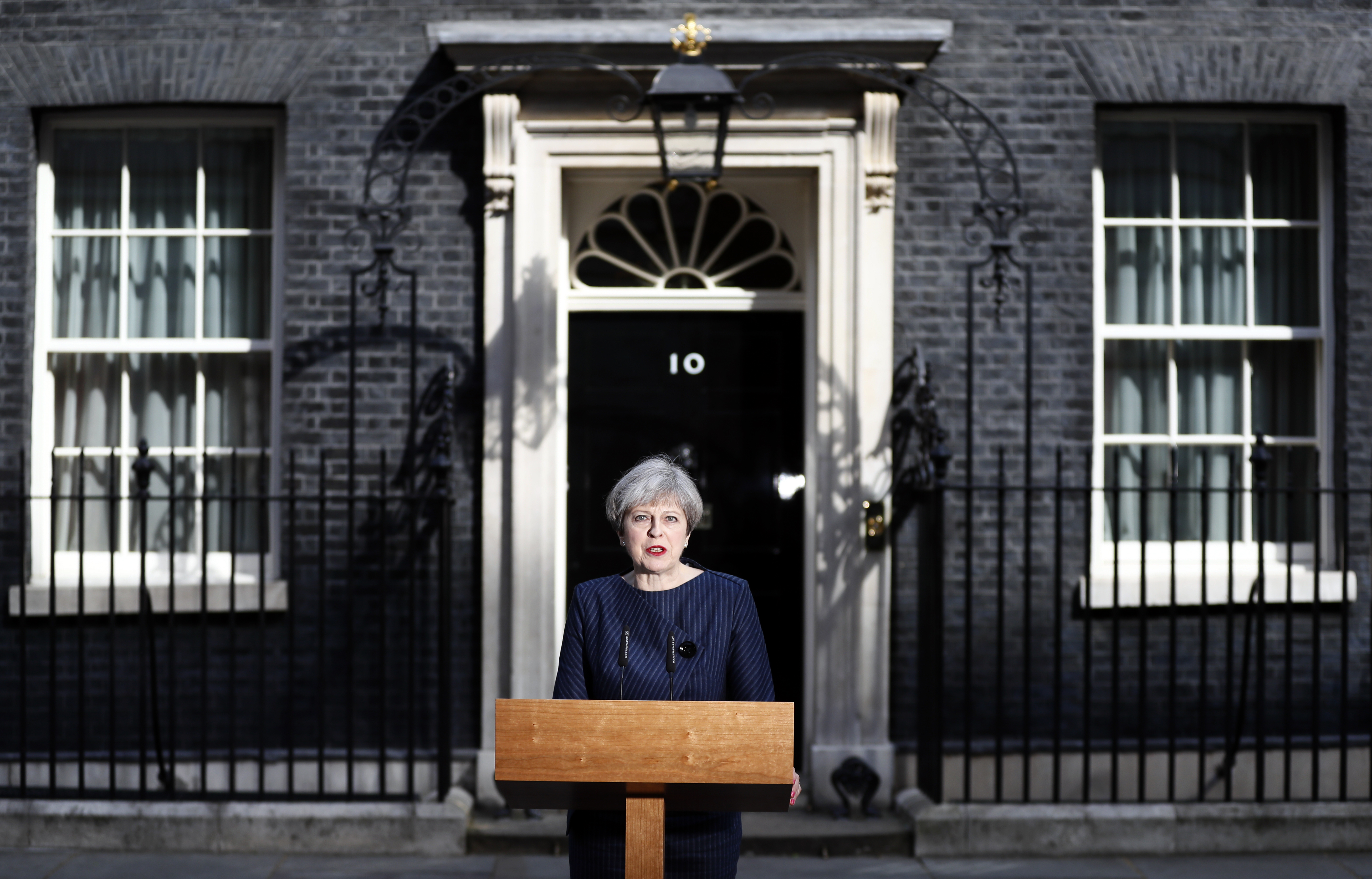Theresa May just called for a snap election. That's a genius move.
Calling a snap election is always a risk, but in this case, it's one worth taking


A free daily email with the biggest news stories of the day – and the best features from TheWeek.com
You are now subscribed
Your newsletter sign-up was successful
Britain's Prime Minister Theresa May just called a snap election. Most often, prime ministers call new elections to break some political crisis and do a sort of referendum on whatever issue has been holding up Parliament. But sometimes, a prime minister will do it just because they're very popular and they want to "lock in" that popularity and increase their majority and term in office. Margaret Thatcher did just this after the Falklands War. Under Britain's latest constitutional reform, calling a new election now requires a two-thirds majority in Parliament, but even so, it seems likely that May will get her wish. The current Parliament was elected in 2015 and its five-year term runs until 2020; if Theresa May wins the election, she will have a term until 2022.
Many commentators have been urging May to call a snap election. The political calculus is quite simple: May is popular. Meanwhile, the opposition Labour Party's far-left leader, Jeremy Corbyn, while quite popular with his core hardline constituency, is unpopular in the country at large and widely regarded as hapless. The latest polls give May's Conservative Party a 21-point lead over Labour.
What's more, May never won a general election in her own name: She became prime minister after an intra-party contest within the Conservative Party after her predecessor David Cameron resigned in the wake of the Brexit vote. Winning a general election as leader of the Conservative Party would increase her democratic legitimacy and stature.
The Week
Escape your echo chamber. Get the facts behind the news, plus analysis from multiple perspectives.

Sign up for The Week's Free Newsletters
From our morning news briefing to a weekly Good News Newsletter, get the best of The Week delivered directly to your inbox.
From our morning news briefing to a weekly Good News Newsletter, get the best of The Week delivered directly to your inbox.
Extending the current majority's term would also allow May to negotiate Brexit with a clearer mind. The clock is ticking: The U.K. now has two years to leave the European Union. With a five-year term ahead of her, May could negotiate with Brussels without worrying that whatever happens after the deadline will be judged in an upcoming election. Right now, all of British political life is consumed by Brexit. It is the only item on Parliament's agenda and in the news. May — who opposed Brexit, if sheepishly — probably wants to be remembered for something other than Brexit and to make some policy on her own terms.
And for these reasons — increasing her democratic legitimacy and extending her time in office — winning a snap election would strengthen May's hand in her negotiations with Brussels.
Thus far, May has handled the extremely complicated and tricky Brexit process about as well as anyone could hope. She has shown a very strong political sense, understanding where the mood of her country stands, and trying to redefine liberal conservatism for this populist age of the West. She's exceeded my expectations of her as prime minister.
At the same time, even when you're 20 points ahead in the polls, calling a snap election is always a gamble. Electorates are fickle, and there's always the risk you might end up felled by your own sword. Theresa May is typically a careful politician. But here, she's taken the right gamble. Kudos to her.
A free daily email with the biggest news stories of the day – and the best features from TheWeek.com
Pascal-Emmanuel Gobry is a writer and fellow at the Ethics and Public Policy Center. His writing has appeared at Forbes, The Atlantic, First Things, Commentary Magazine, The Daily Beast, The Federalist, Quartz, and other places. He lives in Paris with his beloved wife and daughter.
-
 How to Get to Heaven from Belfast: a ‘highly entertaining ride’
How to Get to Heaven from Belfast: a ‘highly entertaining ride’The Week Recommends Mystery-comedy from the creator of Derry Girls should be ‘your new binge-watch’
-
 The 8 best TV shows of the 1960s
The 8 best TV shows of the 1960sThe standout shows of this decade take viewers from outer space to the Wild West
-
 Microdramas are booming
Microdramas are boomingUnder the radar Scroll to watch a whole movie
-
 Epstein files topple law CEO, roil UK government
Epstein files topple law CEO, roil UK governmentSpeed Read Peter Mandelson, Britain’s former ambassador to the US, is caught up in the scandal
-
 Iran and US prepare to meet after skirmishes
Iran and US prepare to meet after skirmishesSpeed Read The incident comes amid heightened tensions in the Middle East
-
 Israel retrieves final hostage’s body from Gaza
Israel retrieves final hostage’s body from GazaSpeed Read The 24-year-old police officer was killed during the initial Hamas attack
-
 China’s Xi targets top general in growing purge
China’s Xi targets top general in growing purgeSpeed Read Zhang Youxia is being investigated over ‘grave violations’ of the law
-
 Panama and Canada are negotiating over a crucial copper mine
Panama and Canada are negotiating over a crucial copper mineIn the Spotlight Panama is set to make a final decision on the mine this summer
-
 Why Greenland’s natural resources are nearly impossible to mine
Why Greenland’s natural resources are nearly impossible to mineThe Explainer The country’s natural landscape makes the task extremely difficult
-
 Iran cuts internet as protests escalate
Iran cuts internet as protests escalateSpeed Reada Government buildings across the country have been set on fire
-
 US nabs ‘shadow’ tanker claimed by Russia
US nabs ‘shadow’ tanker claimed by RussiaSpeed Read The ship was one of two vessels seized by the US military
